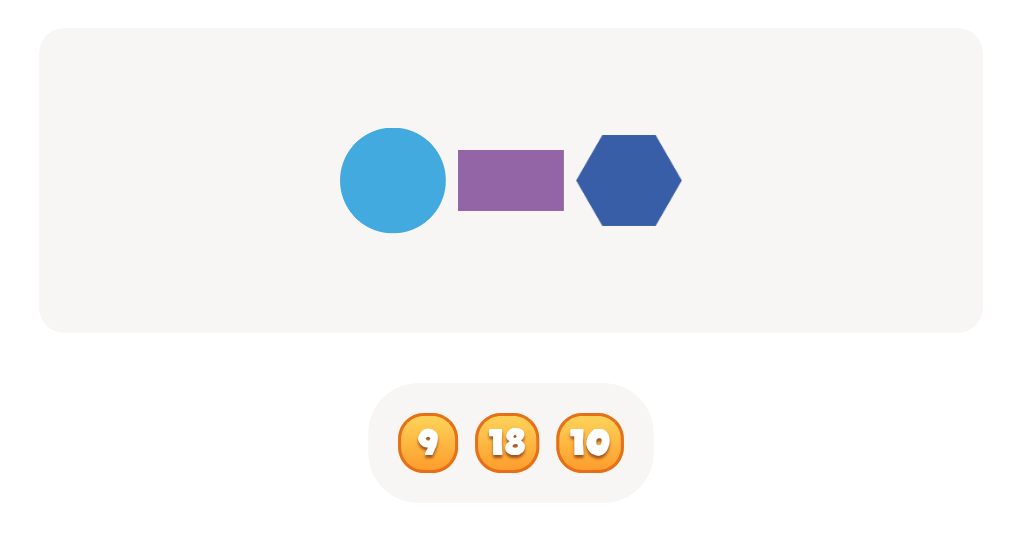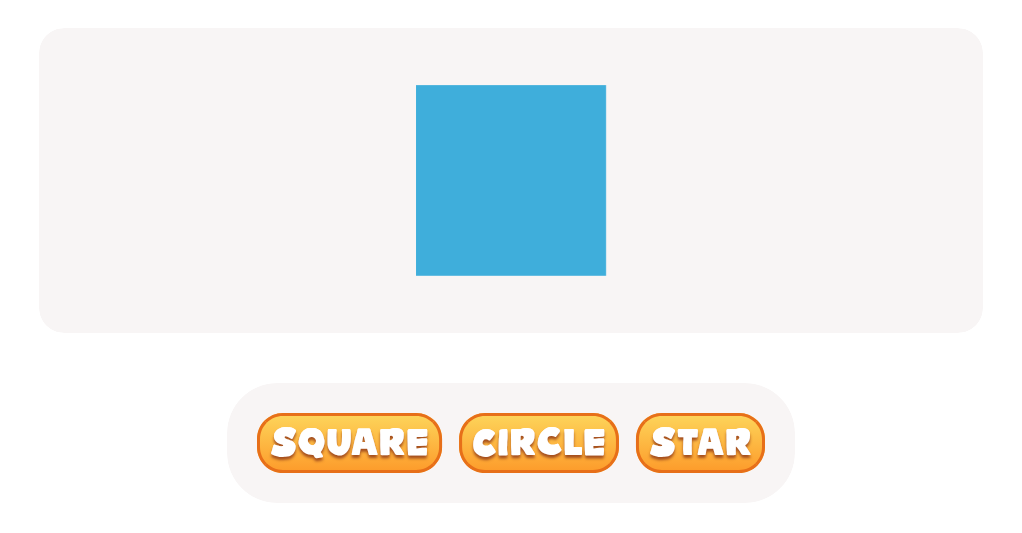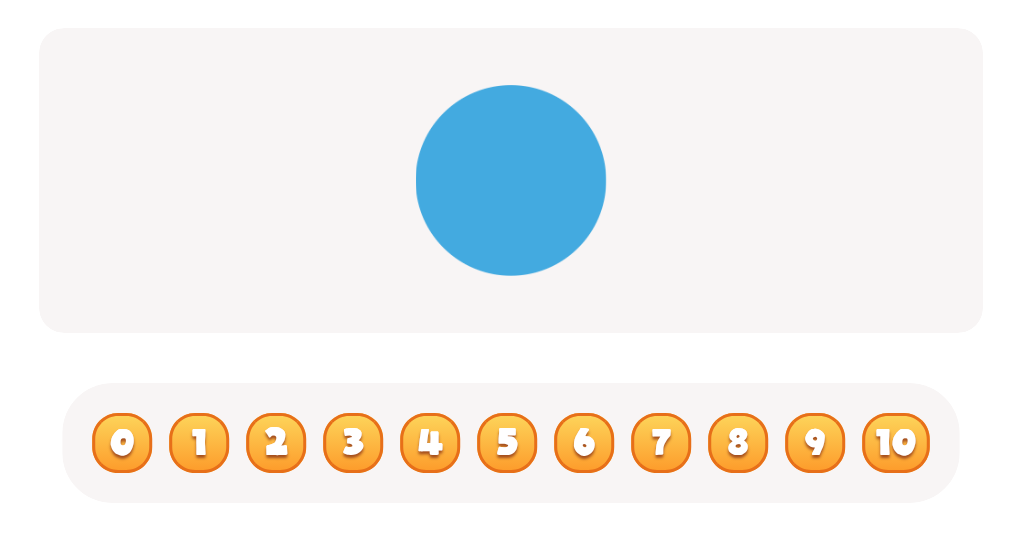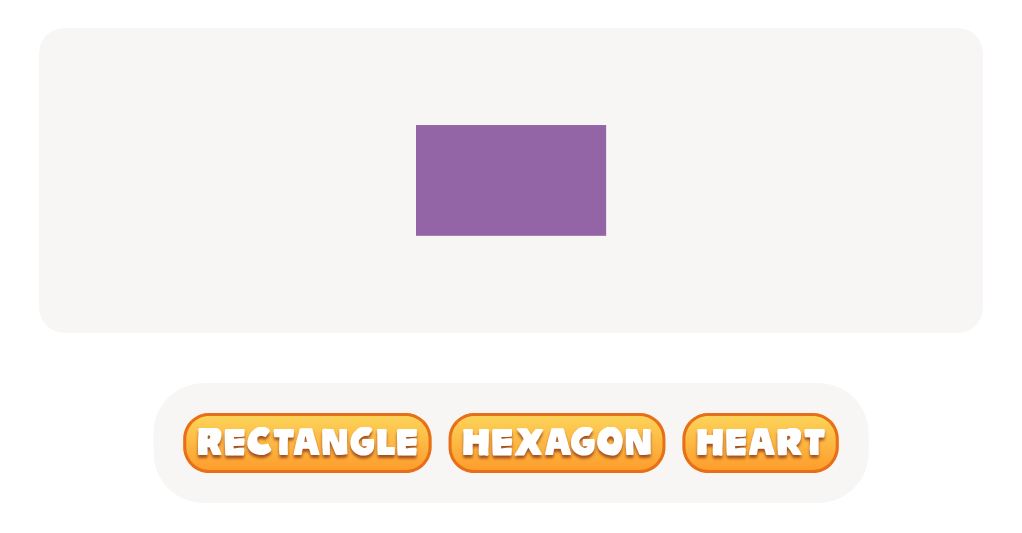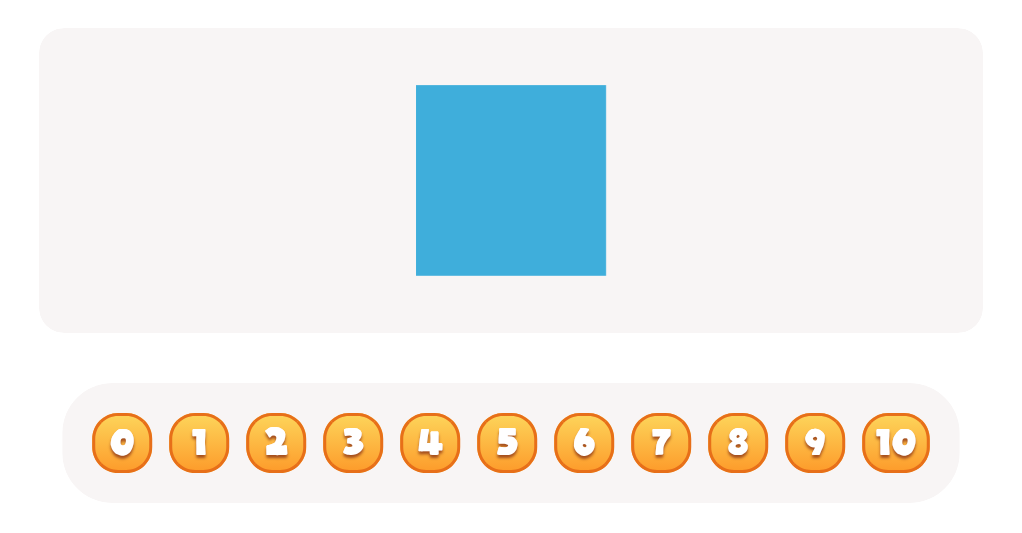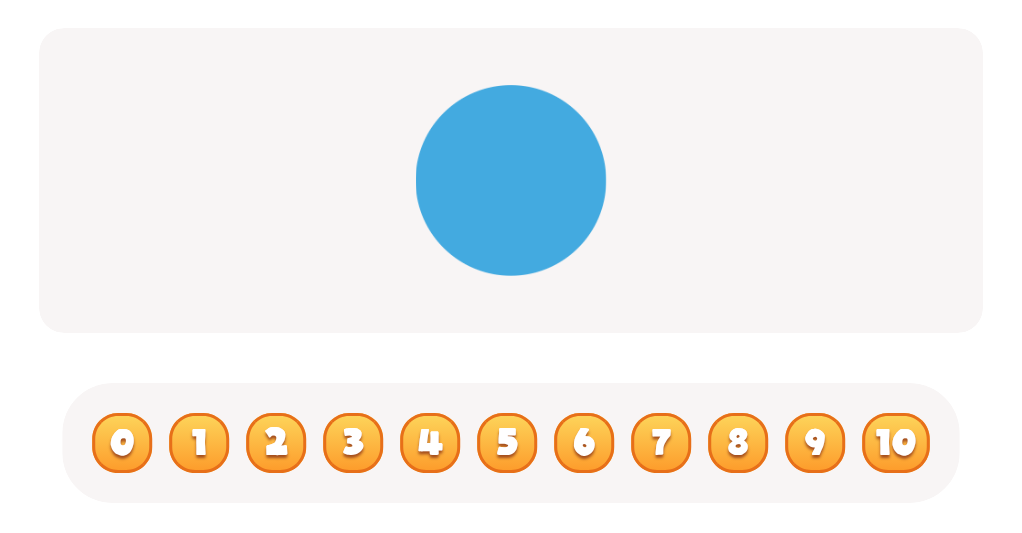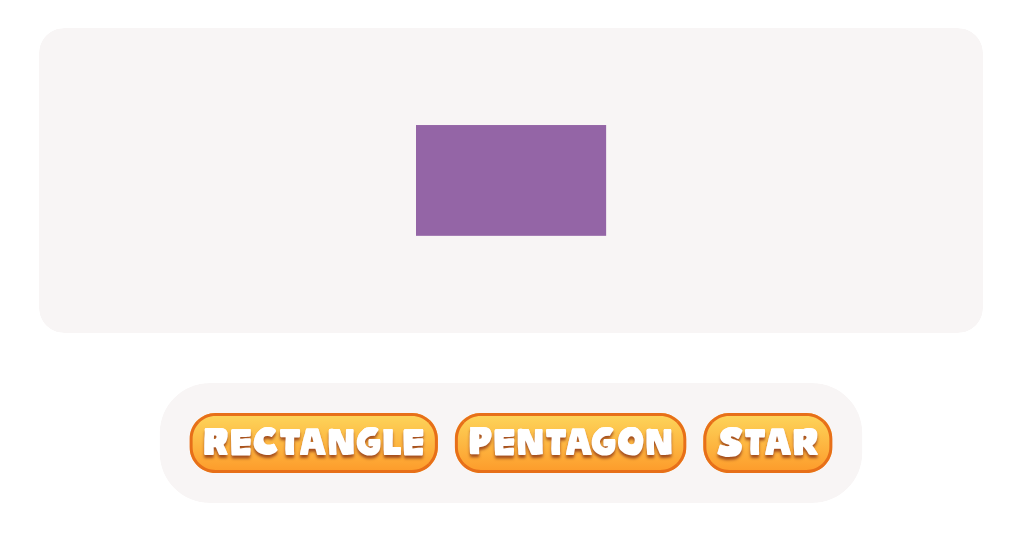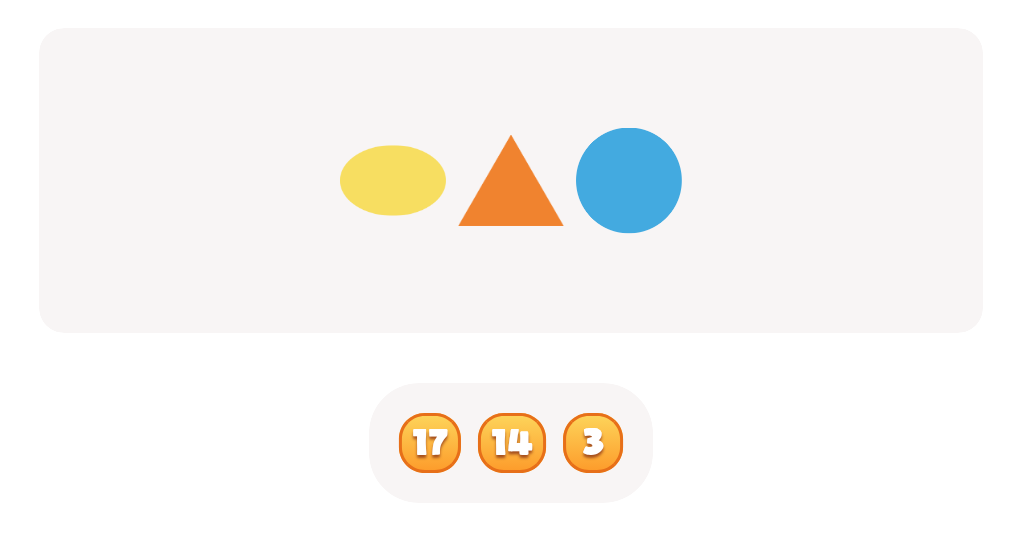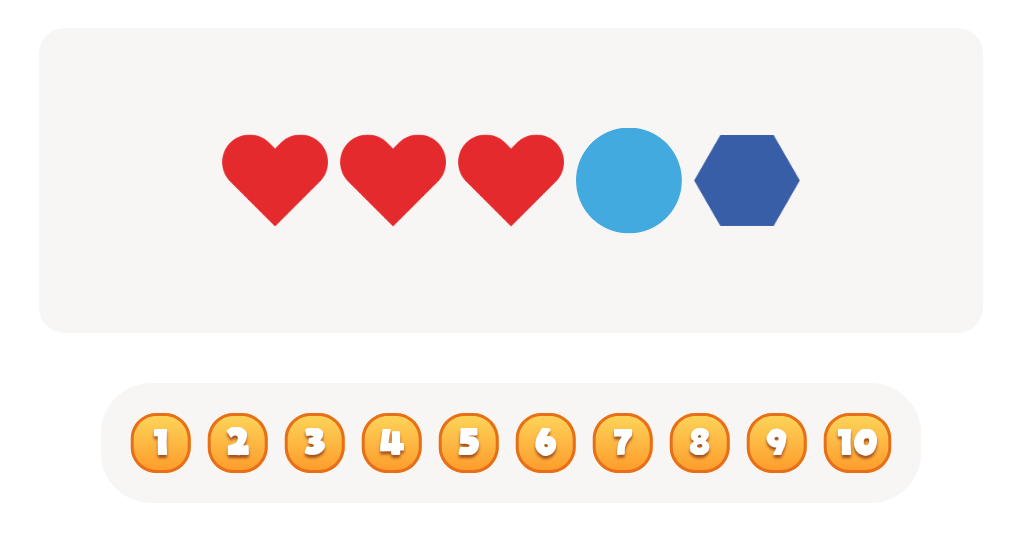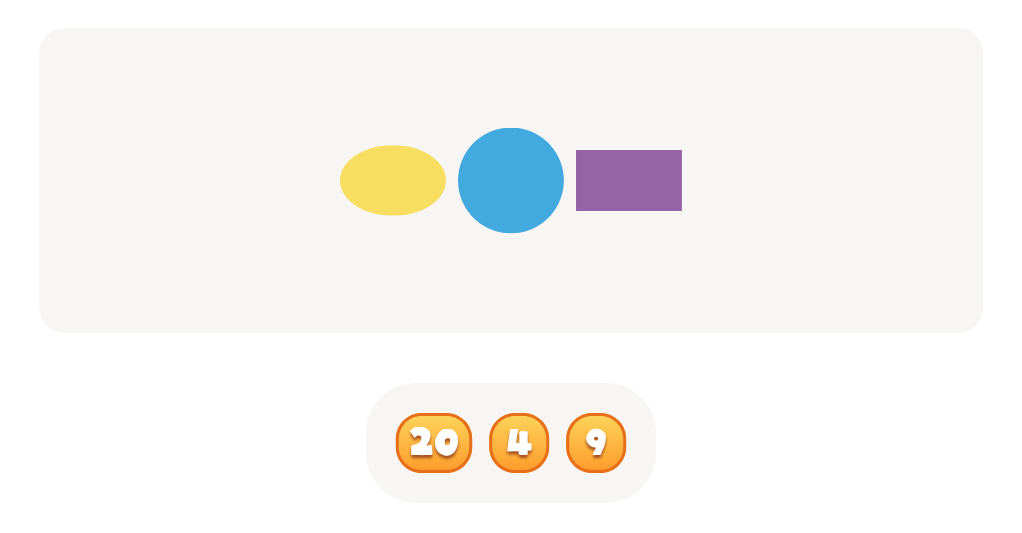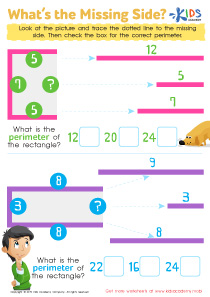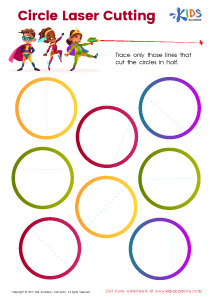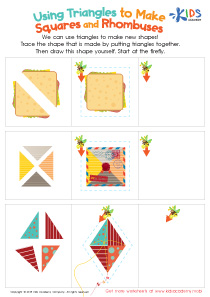Cognitive Development Normal 2D Shapes Worksheets for 4-Year-Olds
5 filtered results
-
From - To
Cognitive Development Normal 2D Shapes Worksheets for 4-Year-Olds are meticulously crafted to boost early learning and cognitive skills. These fun, engaging worksheets introduce children to basic 2D shapes, promoting shape recognition, spatial awareness, and critical thinking. Through visually appealing exercises, kids learn circle, square, triangle, and more while enhancing their problem-solving abilities. Each worksheet is designed with playful activities tailored to support preschoolers' cognitive development and lay a solid foundation for future math learning. Ideal for parents and educators, these resources make learning enjoyable and effective for young minds.
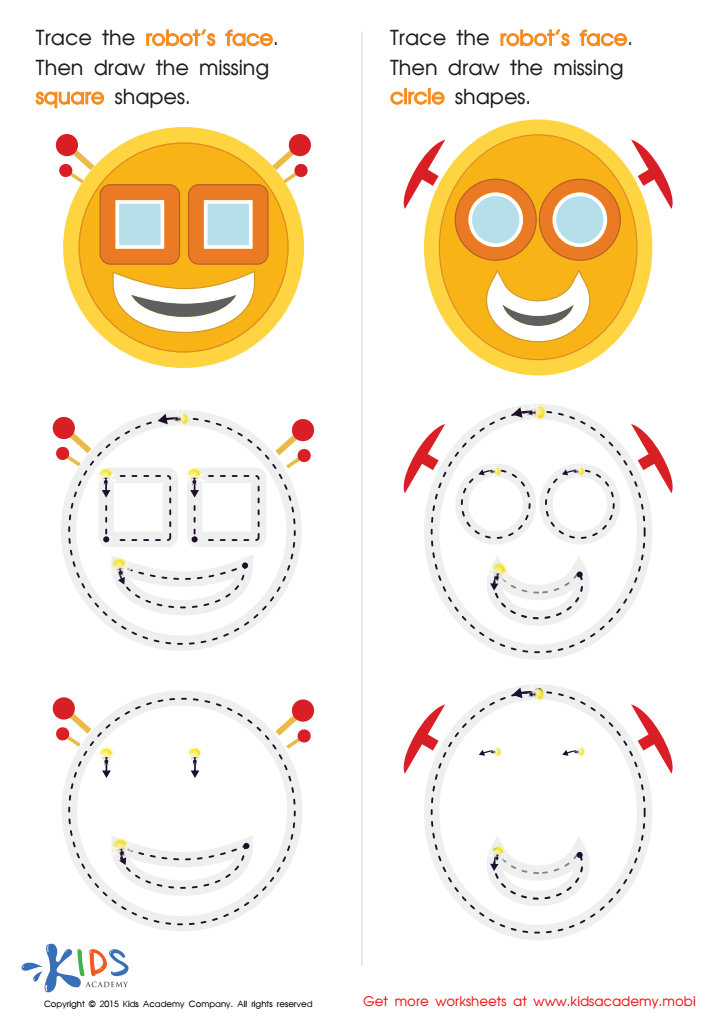

Practicing to Draw Circles And Squares Printable
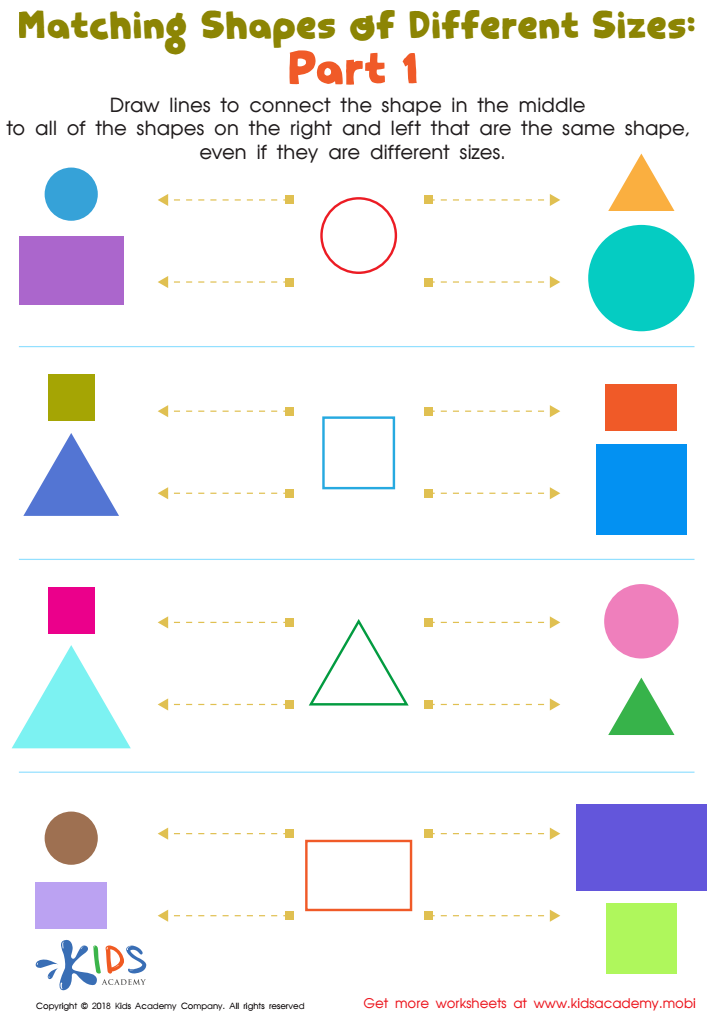

Geometry: part 1 Worksheet


Preschool Geometry Match Up Worksheet
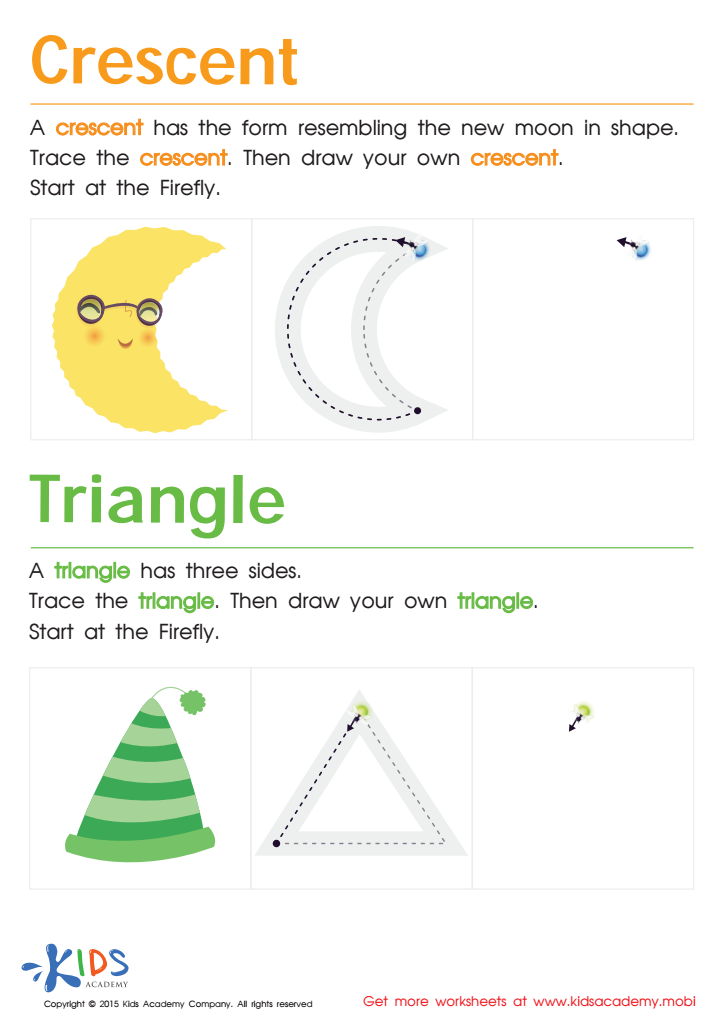

Learning to Draw Crescents And Triangles Worksheet
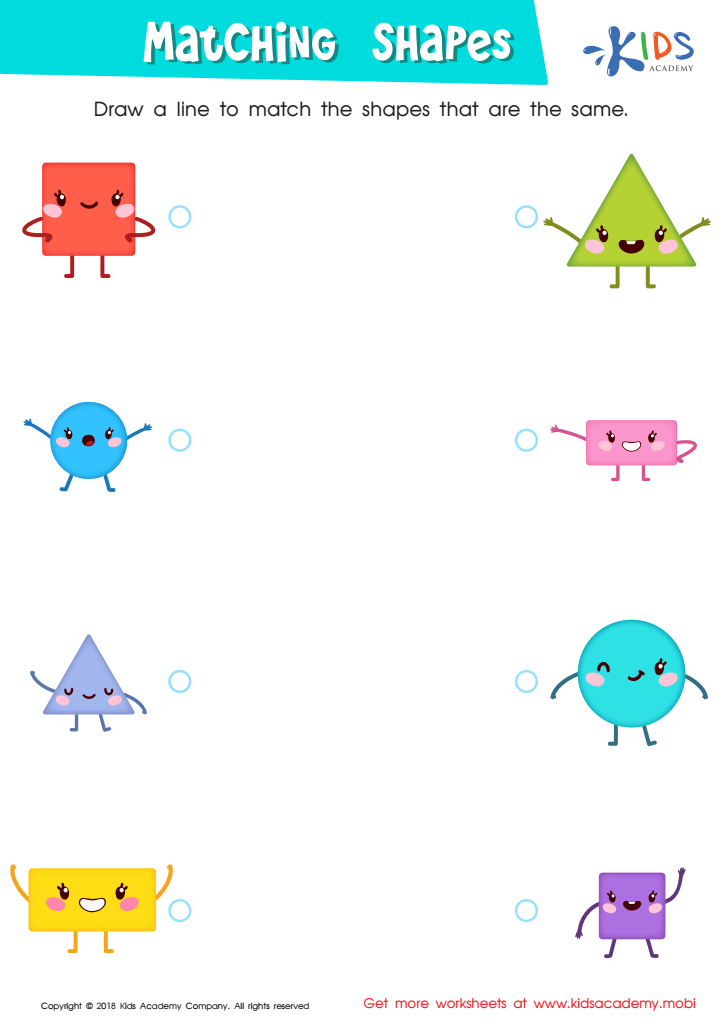

Matching Shapes Worksheet
Caring about cognitive development and normal 2D shapes for 4-year-olds is vital as it lays the foundation for essential life skills. During this stage, children's brains are rapidly developing, and early experiences play a significant role in shaping their cognitive abilities. Introducing basic 2D shapes such as circles, squares, triangles, and rectangles enhances their cognitive and spatial awareness.
Engagement with shapes fosters early mathematical understanding, which is crucial for problem-solving and logical thinking. It strengthens their ability to categorize and relate objects, enhancing their memory and attention to detail. Recognizing patterns formed by these shapes helps in the development of early literacy skills, as children begin to see and interpret forms, which is essential when they start learning letters and numbers.
Activities involving 2D shapes encourage creativity and fine motor skills. As children draw, cut, and manipulate various shapes, they enhance their hand-eye coordination and precision. These tasks build the foundation for later skills in writing and other detail-oriented activities.
Moreover, engaging with shapes supports social development. Shape-related games and collaborative tasks teach children the importance of teamwork and communication, fostering their social skills. Overall, focusing on cognitive development and 2D shapes prepares children not only academically but holistically, equipping them with a robust platform for future learning.
 Assign to My Students
Assign to My Students
